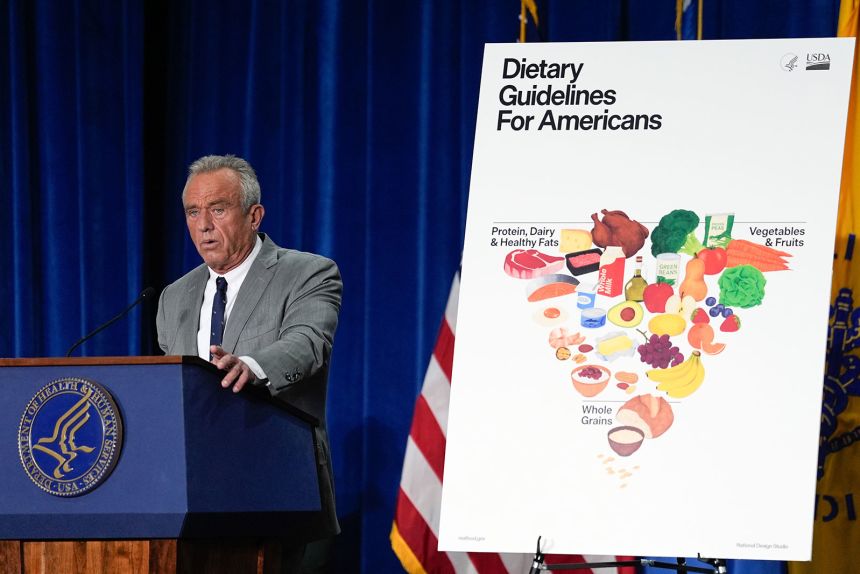host kitchens, also referred to as virtual restaurants, cloud kitchens, or dark kitchens, have experienced a rapid surge in popularity across Florida. Fueled by the growth of delivery platforms and evolving consumer dining preferences, these digital-first restaurant models allow entrepreneurs to enter the food industry with lower upfront costs and flexible scaling opportunities. Yet, while the absence of a traditional dining room may reduce some risks, such as customer slip-and-fall incidents, it also creates a different set of challenges that many first-time operators fail to anticipate.
From specialized property coverage for shared kitchen spaces to equipment breakdown protection and liability connected to third-party delivery drivers, the insurance needs of ghost kitchens can be far more complex than they appear. Add to this Florida’s unique storm exposures, stringent food safety requirements, and labor-related regulations, and it becomes clear why navigating coverage is not straightforward. For entrepreneurs exploring this model, securing the right restaurant insurance for new businesses Florida is not just about meeting basic compliance standards—it is about ensuring operational resilience, financial protection, and long-term sustainability in an increasingly competitive market.

The Ghost Kitchen Boom in Florida
Florida has rapidly become a leading market for ghost kitchens, driven by dense urban centers, a vibrant tourism economy, and a tech-savvy population that embraces digital dining. What began as a pandemic-era solution has turned into a lasting trend, with cities like Miami, Orlando, and Tampa emerging as hubs for delivery-first food concepts. For entrepreneurs, ghost kitchens offer clear advantages: reduced rental costs, leaner staffing needs, and the ability to experiment with multiple brands under one roof.
Yet even without a dining room, ghost kitchens remain restaurants at their core, and that means exposure to many of the same risks. Florida operators must comply with strict health codes, address fire hazards from commercial cooking equipment, safeguard workers against injuries, and plan for supply chain disruptions made worse by storms or market shortages. This hybrid model of food service requires more than just standard coverage. Securing tailored restaurant insurance for new businesses Florida ensures that operators can protect against both traditional restaurant exposures and the unique risks that come with a delivery-focused model, ultimately safeguarding profitability and long-term growth.
Why Insurance for Virtual Restaurants Is Different
Traditional restaurant insurance models were originally designed with dine-in establishments in mind, businesses where guests spend time on the premises, creating certain predictable patterns of liability. Virtual restaurants, or ghost kitchens, disrupt this framework by operating in shared facilities, leased spaces, or commissary kitchens, which fundamentally changes their exposure to risk.
Key Liability Shifts for Ghost Kitchens
- Reduced customer premises liability – With no dining room, there are fewer slip-and-fall incidents from patrons on-site.
- Increased reliance on technology – Ordering systems, delivery apps, and POS platforms become central to operations, raising the need for cyber liability protection.
- Dependence on delivery platforms – Third-party drivers introduce unique liability considerations not typically covered under standard policies.
- Shared property risks – Multi-tenant kitchens mean fire, equipment failure, or water damage could spread across businesses.
- Workforce challenges – High turnover among staff and contractors increases workers’ compensation exposures.
For many operators in Florida, the biggest challenge lies in recognizing that policies built for traditional restaurants may not fully apply to their delivery-first business. Without coverage specifically tailored to ghost kitchens, owners risk dangerous insurance gaps that can jeopardize long-term survival. Specialized solutions, such as restaurant insurance for new businesses Florida, bridge these gaps, ensuring protection that reflects the realities of modern food service models.
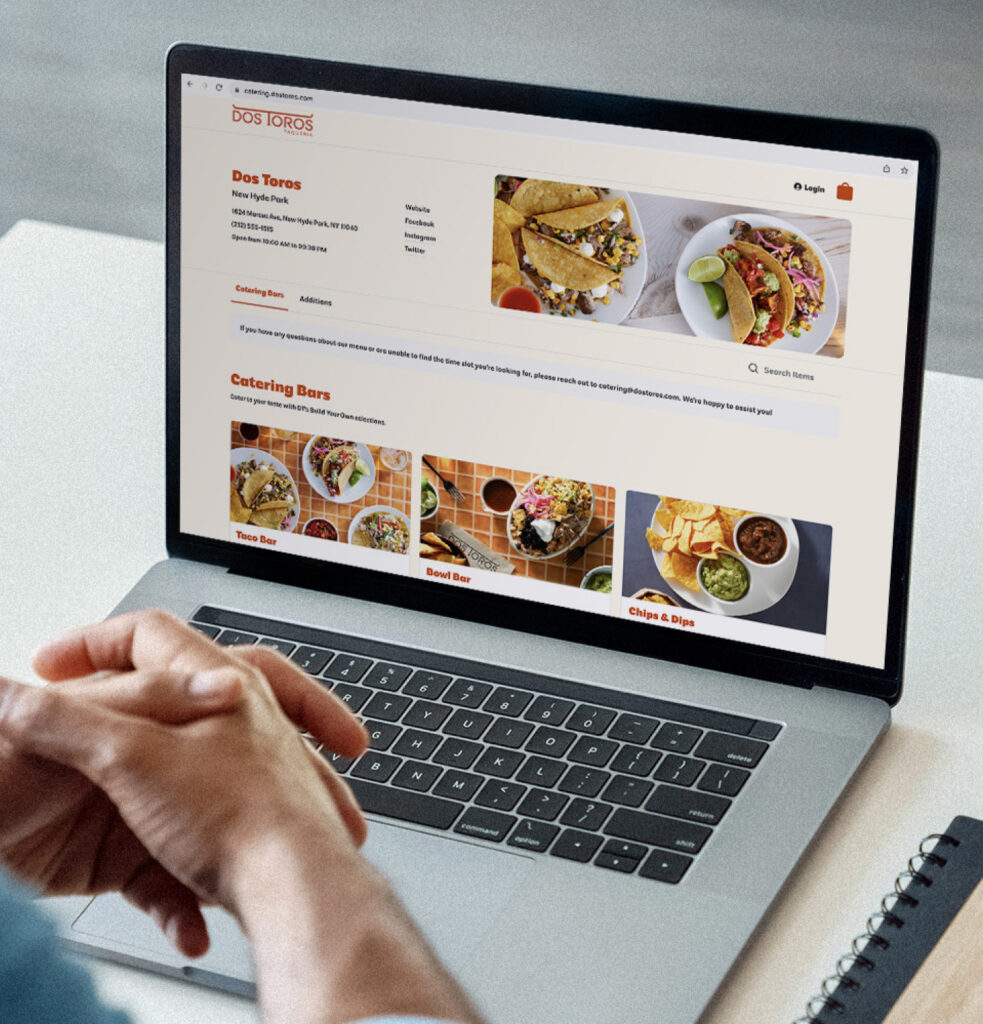
Key Insurance Challenges for Ghost Kitchens in Florida
General Liability in a Delivery-Only Model
Even without the presence of a dining room, general liability coverage remains a cornerstone of protection for ghost kitchens in Florida. While these businesses eliminate certain risks tied to on-site patrons, they continue to face exposures that can quickly escalate into financial losses. Common threats include:
- Foodborne illness claims – Customers who become sick after eating delivered meals may pursue legal action, even when the source of contamination is difficult to trace.
- Contamination exposures – Power outages, refrigeration failures, or supply chain disruptions can compromise food safety, leading to claims and reputational damage.
- Delivery driver interactions – Although third-party drivers often fall outside a restaurant’s direct employment, disputes, accidents, or mishandled deliveries can still draw operators into lawsuits.
For ghost kitchens, standard policies may not be sufficient. It is critical that general liability insurance is structured to account for delivery-based operations, ensuring that coverage extends to the realities of a digital-first, off-premises dining model.
Workers’ Compensation and Employee Claims
Ghost kitchens may operate with smaller teams compared to full-service restaurants, but their employees still face significant workplace risks. Cooks, prep staff, and cleaners work in high-intensity environments where accidents and injuries are common. Key exposures include:
- Burn injuries from ovens, fryers, and stovetops.
- Slip-and-fall incidents caused by spills, grease buildup, or fast-moving kitchen activity.
- Repetitive strain injuries linked to continuous chopping, lifting, and other physical tasks in a high-volume prep environment.
Under Florida law, restaurant operators with four or more employees are required to carry workers’ compensation insurance. For ghost kitchens, overlooking this mandate can result in regulatory fines, legal disputes, and substantial out-of-pocket expenses when injuries occur. Proactively securing workers’ compensation coverage not only keeps the business compliant but also demonstrates a commitment to employee safety and long-term operational stability.
Property Protection in Shared Kitchens.
Many ghost kitchens in Florida operate within commissaries or shared facilities, which creates unique property protection challenges. Unlike traditional standalone restaurants, these operators depend on agreements with landlords and co-tenants, raising important questions such as:
- Who is responsible for damage if a fire originates in another tenant’s kitchen and spreads throughout the facility?
- What does the lease require regarding insurance for equipment, tenant improvements, or modifications made to the rented space?
- How are refrigeration failures or utility outages addressed, particularly when they affect multiple tenants simultaneously?
In these environments, commercial property insurance cannot be approached with a one-size-fits-all policy. Coverage must be tailored to account for shared risks, overlapping responsibilities, and the potential for disputes over liability. Florida’s heightened exposure to hurricanes, flooding, and utility interruptions makes this protection even more critical, ensuring ghost kitchens are safeguarded against both internal and external threats.
Business Interruption in a Delivery-Dependent Operation
For ghost kitchens, downtime can be catastrophic. Because these operations rely almost entirely on delivery platforms and kitchen uptime, even a brief disruption can erase revenue and undermine customer trust. Common triggers include:
- Utility outages that halt food preparation and refrigeration.
- Equipment failures that disable critical cooking or storage systems.
- Delivery platform disruptions that cut off access to customers.
Business interruption insurance provides a vital safety net by helping cover lost income during closures, ongoing expenses such as rent and payroll, and relocation costs if a facility becomes unusable. In Florida, where hurricanes and tropical storms frequently cause widespread power outages and infrastructure damage, this coverage often determines whether a ghost kitchen can recover quickly or face permanent closure. Tailoring business interruption policies to reflect delivery-driven operations ensures continuity and resilience in a high-risk environment.
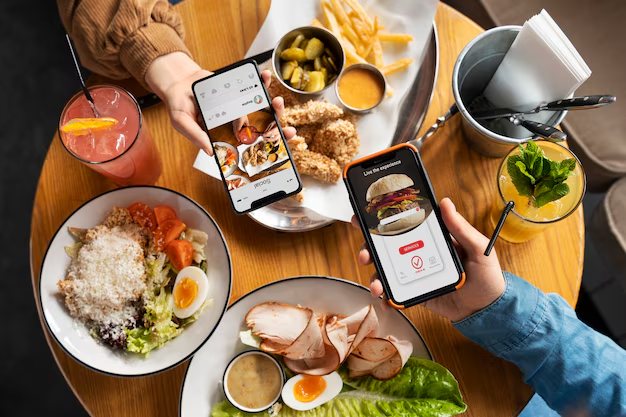
The Regulatory Landscape in Florida
Operating a ghost kitchen in Florida requires navigating a complex and evolving regulatory environment. Even without a traditional dining room, virtual restaurants remain fully accountable to state and local rules that govern food safety, employment, and property use.
Key Regulatory Considerations
- Food safety standards – The Florida Department of Business and Professional Regulation (DBPR) enforces rigorous protocols for handling, storing, and preparing food, ensuring that delivery meals meet health requirements.
- Local zoning and fire codes – Kitchen facilities must comply with city and county regulations, including occupancy limits, ventilation, fire suppression systems, and sanitation protocols.
- Employment regulations – Ghost kitchens employing four or more staff must adhere to workers’ compensation mandates, wage and hour laws, and other labor protections.
Failure to meet these regulatory obligations can expose operators to fines, legal action, and reputational damage. Florida’s focus on hurricane preparedness and disaster readiness further emphasizes the need for comprehensive insurance. Tailored coverage, including restaurant insurance for new businesses Florida, helps ghost kitchen operators remain compliant, mitigate risk, and ensure business continuity even in the face of unexpected disruptions.
Cyber Liability and Digital Exposures
Ghost kitchens rely almost entirely on digital ordering and delivery platforms, which introduces a set of risks uncommon in traditional dine-in restaurants. With online orders, mobile payments, and POS systems forming the backbone of operations, any disruption or security breach can have immediate financial and reputational consequences.
Key Digital Risks for Ghost Kitchens
- Payment data breaches – Customer credit card or personal information may be compromised, leading to liability claims and loss of consumer trust.
- Cyberattacks on POS systems – Malware, ransomware, or system hacks can halt operations, corrupt financial records, or expose sensitive business data.
- Platform outages – Interruptions on third-party ordering apps can block revenue streams and disrupt delivery schedules, affecting both sales and customer satisfaction.
Cyber liability insurance is increasingly critical for virtual restaurants. Proper coverage protects against the financial impact of data breaches, ransomware demands, and operational losses tied to technology failures. For Florida operators, incorporating restaurant insurance for new businesses Florida that includes cyber liability ensures that ghost kitchens can safely leverage digital platforms while mitigating the unique risks of a tech-dependent business model.
Shared Kitchens vs. Independent Ghost Kitchens
Multi-Tenant Commissary Facilities
Ghost kitchens operating within multi-tenant or shared commissary spaces face unique insurance considerations. Lease agreements often shift responsibility for coverage onto tenants, requiring operators to insure their own equipment, inventory, and potential business interruption losses. In these environments, a single incident, such as a fire, flood, or utility failure, can affect multiple tenants simultaneously, creating complex claim scenarios that demand careful policy design and coordination.
Standalone Virtual Kitchens
Independent ghost kitchens that occupy their own leased or owned space encounter more traditional property and liability exposures. However, they still face risks specific to delivery-focused operations, including third-party driver liability, digital platform disruptions, and business interruption linked to technology failures. Their insurance programs may resemble those of quick-service restaurants, but with tailored enhancements to address the off-premises, delivery-driven nature of their operations.
For both shared and standalone models, securing comprehensive restaurant insurance for new businesses Florida ensures that ghost kitchen operators are protected from operational interruptions, liability claims, and property losses, while remaining compliant with state regulations.
Comparing Ghost Kitchen Insurance to Traditional Restaurants
While ghost kitchens share some risks with traditional dine-in restaurants, several key differences make their insurance needs unique. Understanding these distinctions helps operators avoid coverage gaps and protects both revenue and reputation.
Key Differences in Exposure
- Customer presence – With minimal or no on-site diners, ghost kitchens face lower premises liability but increased exposure to product liability and delivery-related claims.
- Property risks – Shared kitchen facilities introduce interdependent risks, where incidents in one unit can affect multiple tenants, unlike standalone restaurants.
- Staffing – Teams are often leaner, but kitchen employees still face hazards such as burns, slips, and repetitive strain injuries, requiring proper workers’ compensation coverage.
- Revenue streams – Heavy reliance on third-party ordering platforms heightens digital and operational vulnerabilities, making cyber liability and business interruption insurance essential.
By recognizing these differences, ghost kitchen operators in Florida can design insurance programs that align with their delivery-driven model and secure comprehensive protection. Policies like restaurant insurance for new businesses Florida ensure that operators are covered for property, liability, cyber, and interruption risks unique to virtual kitchens.
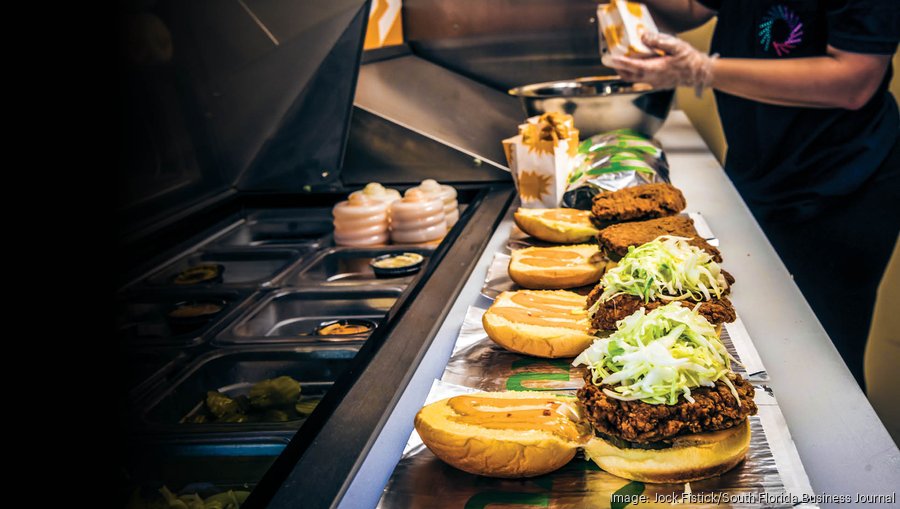
The Cost of Inadequate Insurance
While ghost kitchens often attract entrepreneurs with promises of lower overhead, skimping on insurance can be a financially devastating decision. Even a single incident, whether a foodborne illness, an employee injury, or a cyberattack, can erase years of hard-earned investment. Without proper business interruption coverage, many virtual kitchens are unable to sustain operations during extended closures.
The Real Risks for Ghost Kitchens
- Foodborne illness claims – Legal actions from affected customers can lead to substantial settlements and reputational damage.
- Employee injuries – Kitchen hazards like burns, slips, and repetitive strain injuries can trigger expensive workers’ compensation claims.
- Cyber and operational disruptions – Digital ordering failures or data breaches may halt revenue streams, impacting cash flow and customer trust.
Statistics from the Insurance Information Institute indicate that roughly 40% of small businesses never reopen after a disaster. For Florida ghost kitchens, this risk is amplified due to the state’s hurricane-prone environment, where power outages, flooding, and property damage can compound operational challenges. Securing comprehensive restaurant insurance for new businesses Florida, including general liability, workers’ compensation, cyber liability, and business interruption coverage, is essential to safeguard both investment and long-term viability.
Steps to Building a Comprehensive Ghost Kitchen Insurance Plan
Creating a robust insurance program is critical for ghost kitchens in Florida. Because these businesses operate in unique environments, a strategic approach ensures protection against both traditional restaurant risks and the specific exposures tied to delivery-focused operations.
Assess Operational Risks
Every virtual restaurant has distinct vulnerabilities depending on its business model, kitchen setup, and reliance on delivery platforms. Conducting a professional risk assessment helps identify potential hazards before they lead to costly claims, from employee injuries to cyber incidents or property damage.
Bundle Core Coverages
Most ghost kitchens benefit from combining essential coverages into a single, streamlined program. Core policies typically include:
- General liability – Protects against claims from customers, vendors, or third parties.
- Workers’ compensation – Covers employee injuries and ensures regulatory compliance.
- Commercial property insurance – Safeguards equipment, inventory, and leased facilities.
- Business interruption insurance – Provides income protection during unforeseen closures.
Bundling policies not only reduces costs but also simplifies claims management, making it easier for operators to focus on growing their business.
Add Specialized Riders
To address risks unique to delivery-driven models, ghost kitchen operators should consider additional coverage:
- Cyber liability – Protects against data breaches, ransomware, and technology failures.
- Equipment breakdown – Covers critical kitchen and refrigeration units essential for operations.
- Utility service interruption riders – Provides coverage for power outages, especially relevant in Florida’s hurricane-prone climate.
Review Annually
As ghost kitchens evolve, expanding delivery zones, adding new brands, or relocating facilities, insurance programs should be reviewed and updated annually. Regular reviews ensure coverage keeps pace with operational changes and emerging risks, providing continuous protection for both assets and revenue.
Tailored restaurant insurance for new businesses Florida combines these strategies, offering ghost kitchen operators a comprehensive solution to manage risks and safeguard long-term success.
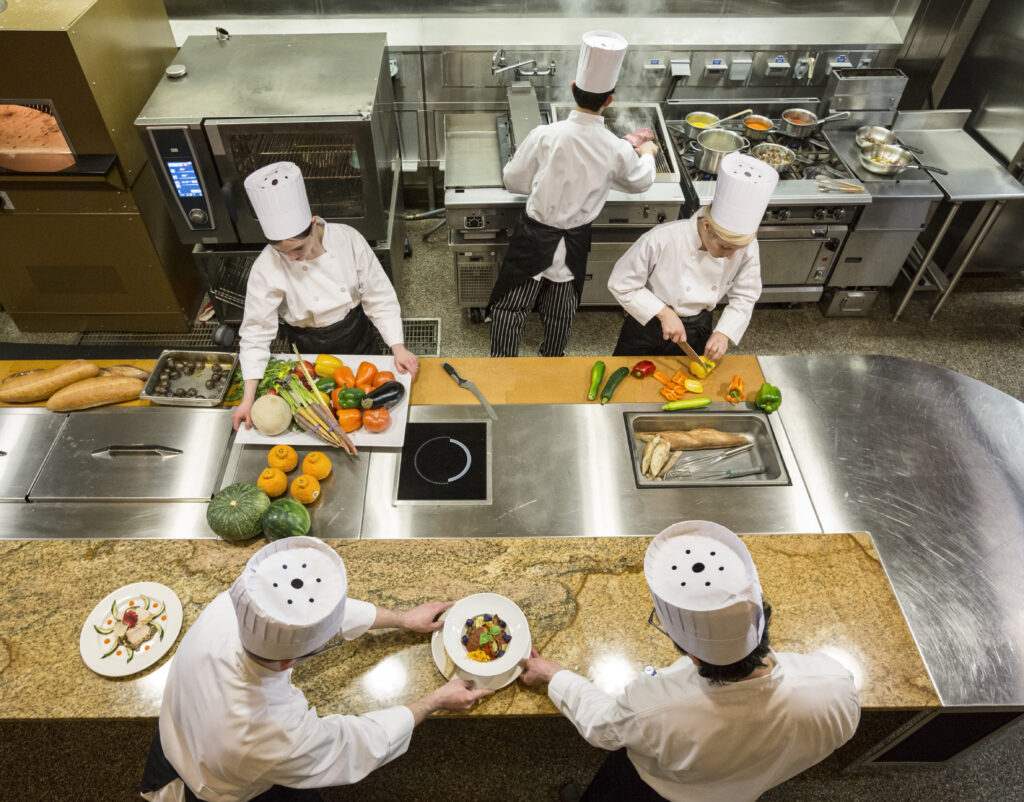
Resources for Florida Restaurant Operators
Running a ghost kitchen or any restaurant in Florida involves navigating a complex landscape of operational, regulatory, and insurance challenges. Fortunately, operators have access to authoritative resources that provide guidance on compliance, risk management, and disaster preparedness. Leveraging these tools can help virtual and traditional restaurant owners make informed decisions, avoid costly mistakes, and ensure long-term business continuity.
U.S. Small Business Administration (SBA)
The SBA offers a wide range of programs and services tailored to small businesses, including ghost kitchens. Operators can access guidance on:
- Business planning and financial management – Assistance with budgeting, cash flow, and strategic growth planning.
- Disaster preparedness and recovery – Support in planning for hurricanes, floods, and other emergencies, as well as navigating loans or grants after a disaster.
- Regulatory guidance – Help understanding federal and state requirements for permits, licenses, and insurance compliance.
By consulting the SBA, Florida restaurant operators can better anticipate operational risks and prepare contingency plans, ensuring their business is resilient even in unpredictable circumstances.
National Restaurant Association (NRA)
The NRA provides comprehensive industry resources for both established and emerging restaurant businesses, including virtual kitchens. Key areas include:
- Industry trends and market insights – Data on consumer behavior, delivery platforms, and emerging concepts like ghost kitchens.
- Food safety and regulatory compliance – Guidelines for proper food handling, sanitation, and state-mandated inspections.
- Workforce management – Training tools, employee safety programs, and guidance on labor law compliance.
Leveraging NRA resources enables operators to maintain high operational standards, protect customers, and reduce the likelihood of regulatory violations.
Insurance Information Institute (III)
Insurance is a critical component of risk management, and the III provides detailed educational materials tailored to business owners. Key offerings include:
- Coverage options – Information on general liability, workers’ compensation, cyber liability, property insurance, and business interruption.
- Claims management guidance – Best practices for filing claims and understanding policy terms.
- Risk mitigation strategies – Insights on how to reduce exposures, prevent losses, and maintain operational continuity.
For Florida ghost kitchens, combining the knowledge from these resources with tailored restaurant insurance for new businesses Florida ensures comprehensive protection. This approach not only addresses traditional risks such as employee injuries or property damage but also covers emerging threats like digital platform outages and cyber incidents.
By actively engaging with these authoritative sources, ghost kitchen operators can build a resilient business framework, remain compliant with regulations, and make informed decisions about insurance and operational risk management, ultimately safeguarding their investment and supporting sustainable growth in a competitive market.
Taking Action on Ghost Kitchen Risks
The rapid growth of ghost kitchens in Florida offers entrepreneurs exciting opportunities, but it also introduces a set of insurance challenges that differ from those of traditional restaurants. Operators must carefully address liability shifts, property exposures, workforce hazards, and digital vulnerabilities that are unique to the delivery-focused, off-premises model.
The Importance of Proactive Coverage
Ghost kitchen operators who take a proactive approach to insurance gain a strategic advantage. Securing comprehensive coverage, including general liability, workers’ compensation, commercial property, business interruption, and cyber liability, helps mitigate both conventional and emerging risks. By working with experienced providers, restaurant owners exploring restaurant insurance for new businesses Florida can access tailored solutions that align with their business model, protecting against everything from foodborne illness claims to technology failures and delivery-related liability.
Consequences of Inadequate Insurance
Ghost kitchens that treat insurance as an afterthought face significant dangers. Statistics from the Insurance Information Institute show that a large portion of small businesses never reopen after a single major disruption. For virtual restaurants in Florida, hurricanes, power outages, and supply chain interruptions amplify these risks. Without proper coverage, a single claim or operational setback could wipe out years of investment, leaving operators unable to recover.
Benefits of Strategic Insurance Planning
Conversely, ghost kitchens that invest in comprehensive insurance gain the stability needed to innovate and expand. Adequate coverage provides peace of mind, financial protection, and operational resilience, allowing owners to experiment with new concepts, scale their brands, and compete effectively in Florida’s fast-changing dining landscape. By viewing insurance as a critical component of business strategy, rather than a regulatory obligation, virtual restaurant operators position themselves for sustainable growth and long-term success.
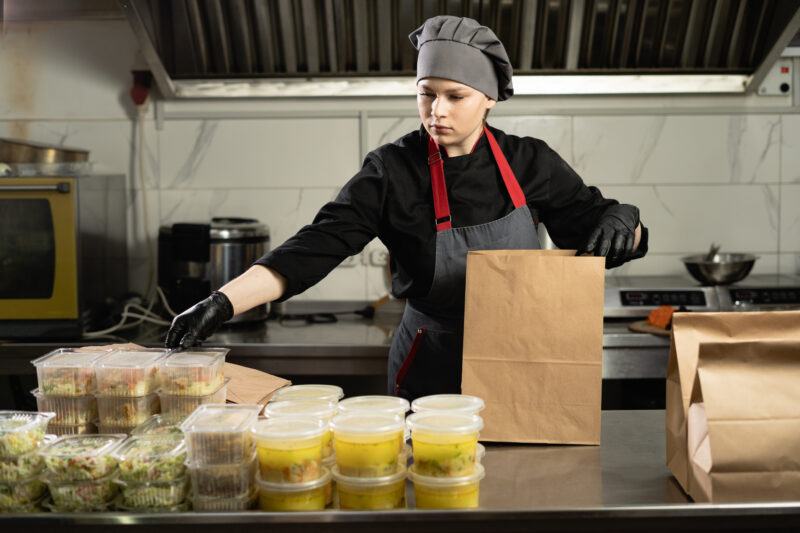
Final Thoughts
Navigating the complex insurance landscape of ghost kitchens in Florida requires expertise, foresight, and tailored solutions. From liability shifts and property exposures to cyber risks and business interruption challenges, operators face a unique set of vulnerabilities that demand comprehensive coverage.
For virtual restaurant owners seeking peace of mind and protection, Commercialize Insurance Services (CIS) stands out as an experienced and trusted partner. Specializing in restaurant insurance for new businesses in Florida, Commercialize Insurance Services (CIS) provides customized policies that address both traditional and emerging risks. By working with Commercialize Insurance Services (CIS), ghost kitchen operators can secure the stability needed to grow, innovate, and thrive in an increasingly competitive market, ensuring that their investment and operations are protected today and prepared for the challenges of tomorrow.
To learn more, visit https://usa-cis.com/ or contact one of their knowledgeable agents today



